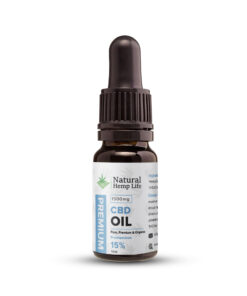Good quality sleep is the single most important process for the recovery of body and soul. Waking up rested in the morning and staying focused, active and happy all day seems to be an unattainable utopia for many people, unfortunately.
CBD Oil against sleep disorders and insomnia
The fact that people experience issues with sleep is common and affects more and more Europeans as stress in our society increases. Physical and mental disorders are associated with sleep disorders. The most common short-term consequences of insufficient or irregular sleep are: a weakened immune system, reduced physical and mental abilities, difficulties concentrating, and impaired ability to store and remember new knowledge.
The long-term consequences of sleep deprivation include high blood pressure and increased risks of stroke, diabetes, and myocardial infarction. Even depression, weak immune systems, and loss of libido can occur and are often directly related to sleep disorders. Spontaneous sleep problems can affect everyone and usually have a minor impact on one’s everyday life, but insomnia and prolonged sleep difficulties can adversely affect people’s lives on a larger scale.
Does CBD help with sleep disorders?
This is a very common question in relation to CBD. It is a good question and the answer depends a lot on the underlying reasons for one’s sleepless nights. One-third of all Europeans have sleep problems, and CBD is a natural dietary supplement with no side effects or addictive properties whatsoever. It is an alternative to traditional chemical sleep agents that more people are beginning to discover and try.
If you are experiencing re-occurring difficulties with falling asleep, to the extent that it affects your job and private life, then it is important to address the problem. Insomnia affects more and more Europeans, and it is a more prolonged and stressful form of sleep disorders. Insomnia often results in low energy and long and exhausting nights. These issues often lead to fatigue syndrome, depression, and other related diseases. This applies even if you tend to have interrupted sleep (i.e. wake up several times a night) and have difficulty falling asleep. A clear sign that you actually have sleep problems is that you never feel energized enough to handle the demands of your environment.
Your body’s endocannabinoid system regulates your sleep
Your body’s own endocannabinoid system is in many ways linked to both cortical activities in the brain, and several stages of NREM sleep. CBD has been shown to have several sleep-regulating functions. Not only does it contribute to deeper sleep, but also more regular sleep. CBD also promotes the body’s ability to wake up in the morning, which reduces the risk of remaining in bed for a longer period of time while trying to get rid of sleepiness. Since cannabinoids also have positive effects on many of the causes of sleep deprivation and sleep problems, it is becoming increasingly clear that the CBD is a holistic solution. CBD has been found to have pain-relieving effects which can also contribute to better sleep if one suffers from sleep difficulties due to pain.






